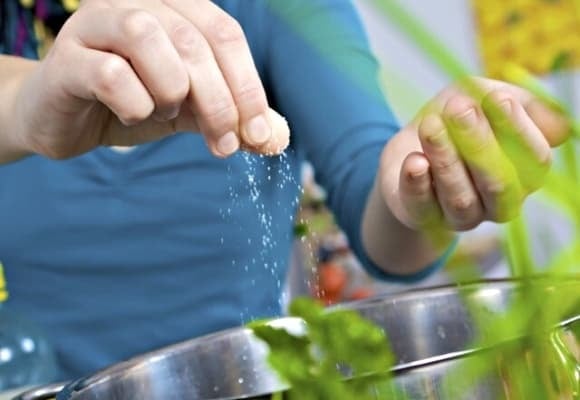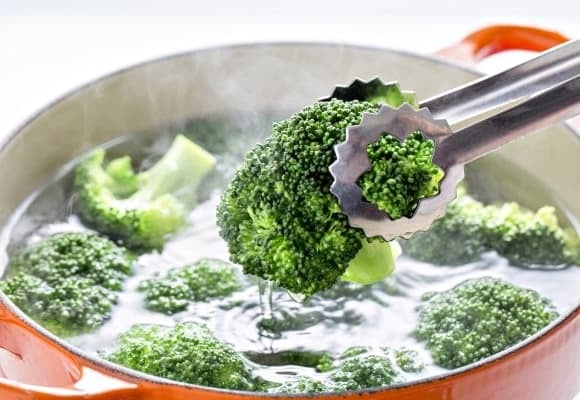Green vegetables are an essential part of our daily diet, packed with fiber that aids in weight management, digestion, cardiovascular health, and provides vital vitamins and minerals for the body.
According to the National Institute of Nutrition, steaming is the best method to retain nutrients, but boiling remains popular for its convenience and the ability to use the broth. However, improper boiling techniques can lead to nutrient loss and pose serious health risks.
The Habit of Adding Salt While Boiling Vegetables: More Harm Than Good
Many households still add salt to boiling water to make vegetables look greener and crispier. However, nutrition experts warn that this practice poses significant health risks. When salt is added to the water, it penetrates deep into the vegetable fibers and is difficult to remove.

If the broth is also consumed, the body’s salt intake increases significantly, especially when combined with dipping sauces or seasonings during meals. Over time, this can lead to excessive salt consumption, raising the risk of high blood pressure, cardiovascular disease, and kidney dysfunction.
Additionally, the practice of soaking raw vegetables in diluted salt water to “disinfect” them is a common misconception. Dr. Tu Ngu, Vice Chairman of the Vietnam Nutrition Association, states: “Soaking vegetables in salt water does not make them cleaner, nor does it eliminate parasites or remove chemicals. Instead, the salt absorbed by the vegetables makes them softer, reduces their nutrient content, and unnecessarily increases salt intake.”
5 Common Mistakes When Cooking Vegetables That Lead to Nutrient Loss and Health Risks
Beyond excessive salt use, the following seemingly harmless habits can silently harm your health and deplete valuable nutrients from green vegetables:
-
Underboiling Vegetables to Keep Them Crispy: Many prefer lightly boiling water spinach or celery to maintain their green color and crunch. However, this temperature is insufficient to kill parasites, particularly liver flukes commonly found in aquatic vegetables, which can cause severe liver damage.
-
Overboiling, Leaving the Lid Off, or Adding Vegetables to Cold Water: Overcooked vegetables become mushy, with vitamins and minerals dissolving into the water or evaporating. Boiling with the lid off keeps vegetables greener but reduces nutrient retention. Adding vegetables to cold water also causes significant vitamin loss during heating.

-
Discarding Vegetable Broth: According to Dr. Tu Ngu, most water-soluble vitamins and minerals are found in the broth. Discarding it is wasteful. It’s best to use it as soup, using just enough water to cover the vegetables to retain nutrients.
-
Leaving Boiled Vegetables for Too Long Before Eating: Boiled vegetables should be consumed immediately after cooking. Dr. Tu Ngu advises: “Boiled vegetables should be prepared last, just before eating.” If left for more than 2 hours, they can decompose, lose nutrients, and become susceptible to bacterial contamination.
-
Overconsuming Boiled Vegetables: While nutrient-rich, boiled vegetables are unsuitable for those with diarrhea or dysentery due to their laxative effect. For healthy individuals, the recommended intake is about 300g/day, along with diverse fiber sources from fruits and tubers.






























